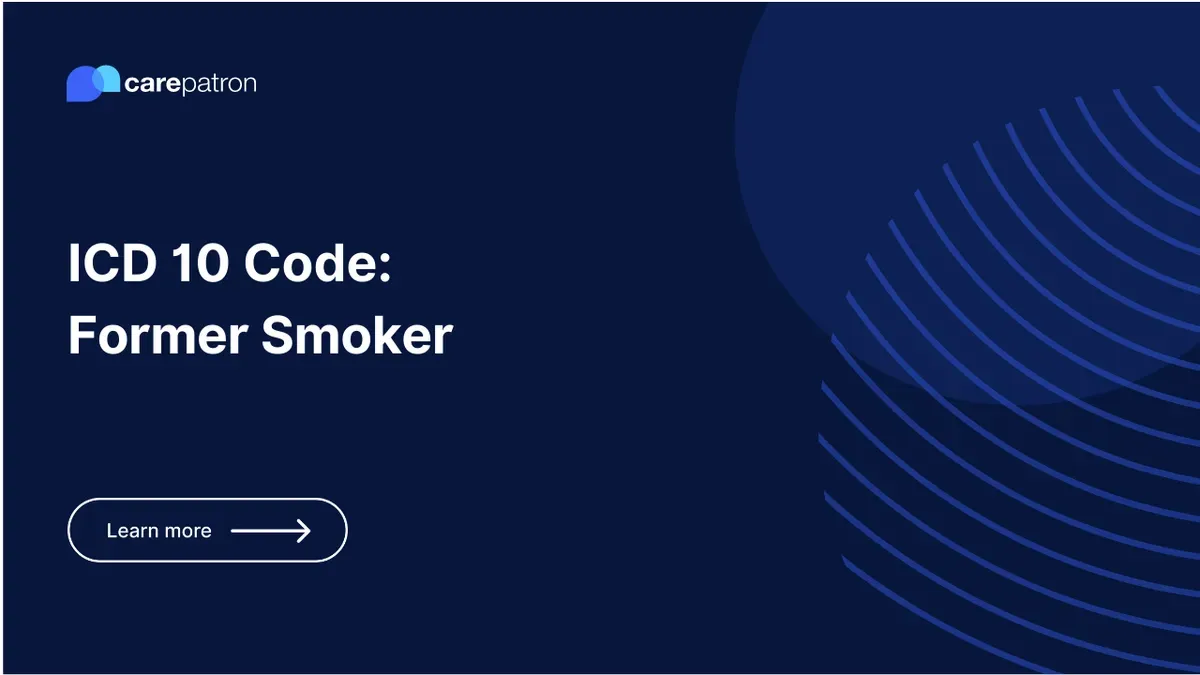
Former Smoker ICD-10-CM Codes | 2023
Learn the significance of ICD-10 codes for former smokers. These codes offer valuable insights into patient history, preventive care & epidemiological studies.
Use Code
Commonly asked questions
A former smoker ICD code is used when a patient has a history of nicotine dependence or tobacco use but is no longer actively using these substances. It's crucial for accurate medical documentation and treatment planning.
Yes, diagnoses indicating a patient's former smoking status are billable. They provide critical information for healthcare payers when processing claims and reimbursements.
Even after quitting, former smokers may need supportive interventions, such as counseling or pharmacotherapy, to prevent relapse. They may also need screening for diseases commonly associated with smoking.
EHR and practice management software
Get started for free
*No credit card required
Free
$0/usd
Unlimited clients
Telehealth
1GB of storage
Client portal text
Automated billing and online payments
